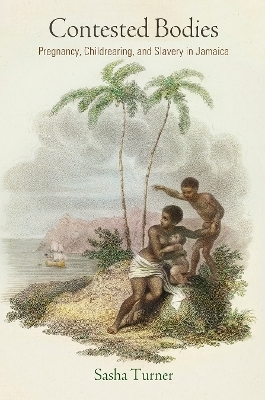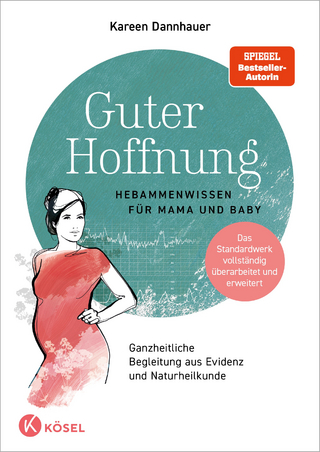
Contested Bodies
Pregnancy, Childrearing, and Slavery in Jamaica
Seiten
2017
University of Pennsylvania Press (Verlag)
978-0-8122-4918-7 (ISBN)
University of Pennsylvania Press (Verlag)
978-0-8122-4918-7 (ISBN)
- Lieferbar (Termin unbekannt)
- Versandkostenfrei innerhalb Deutschlands
- Auch auf Rechnung
- Verfügbarkeit in der Filiale vor Ort prüfen
- Artikel merken
Contested Bodies explores how the end of the transatlantic trade impacted Jamaican slaves and their children. Examining the struggles for control over biological reproduction, Turner shows how central childbearing was to the organization of plantation work, the care of slaves, and the development of their culture.
It is often thought that slaveholders only began to show an interest in female slaves' reproductive health after the British government banned the importation of Africans into its West Indian colonies in 1807. However, as Sasha Turner shows in this illuminating study, for almost thirty years before the slave trade ended, Jamaican slaveholders and doctors adjusted slave women's labor, discipline, and health care to increase birth rates and ensure that infants lived to become adult workers. Although slaves' interests in healthy pregnancies and babies aligned with those of their masters, enslaved mothers, healers, family, and community members distrusted their owners' medicine and benevolence. Turner contends that the social bonds and cultural practices created around reproductive health care and childbirth challenged the economic purposes slaveholders gave to birthing and raising children.
Through powerful stories that place the reader on the ground in plantation-era Jamaica, Contested Bodies reveals enslaved women's contrasting ideas about maternity and raising children, which put them at odds not only with their owners but sometimes with abolitionists and enslaved men. Turner argues that, as the source of new labor, these women created rituals, customs, and relationships around pregnancy, childbirth, and childrearing that enabled them at times to dictate the nature and pace of their work as well as their value. Drawing on a wide range of sources—including plantation records, abolitionist treatises, legislative documents, slave narratives, runaway advertisements, proslavery literature, and planter correspondence—Contested Bodies yields a fresh account of how the end of the slave trade changed the bodily experiences of those still enslaved in Jamaica.
It is often thought that slaveholders only began to show an interest in female slaves' reproductive health after the British government banned the importation of Africans into its West Indian colonies in 1807. However, as Sasha Turner shows in this illuminating study, for almost thirty years before the slave trade ended, Jamaican slaveholders and doctors adjusted slave women's labor, discipline, and health care to increase birth rates and ensure that infants lived to become adult workers. Although slaves' interests in healthy pregnancies and babies aligned with those of their masters, enslaved mothers, healers, family, and community members distrusted their owners' medicine and benevolence. Turner contends that the social bonds and cultural practices created around reproductive health care and childbirth challenged the economic purposes slaveholders gave to birthing and raising children.
Through powerful stories that place the reader on the ground in plantation-era Jamaica, Contested Bodies reveals enslaved women's contrasting ideas about maternity and raising children, which put them at odds not only with their owners but sometimes with abolitionists and enslaved men. Turner argues that, as the source of new labor, these women created rituals, customs, and relationships around pregnancy, childbirth, and childrearing that enabled them at times to dictate the nature and pace of their work as well as their value. Drawing on a wide range of sources—including plantation records, abolitionist treatises, legislative documents, slave narratives, runaway advertisements, proslavery literature, and planter correspondence—Contested Bodies yields a fresh account of how the end of the slave trade changed the bodily experiences of those still enslaved in Jamaica.
Sasha Turner is Associate Professor of History at Quinnipiac University.
Introduction. Transforming Bodies
Chapter 1. Conceiving Moral and Industrious Subjects: Women, Children, and Abolition
Chapter 2. "The Best Ones Who Are Fit to Breed": The Quest for Biological Reproduction
Chapter 3. When Workers Become Mothers, Who Works? Motherhood, Labor, and Punishment
Chapter 4. "Buckra Doctor No Do You No Good": Struggles over Maternal Health Care
Chapter 5. "Dead Before the Ninth Day": Struggles over Neonatal Care
Chapter 6. Mothers Know Best? Maternal Authority and Children's Survival
Chapter 7. Raising Hardworking Adults: Labor, Punishment, and Slave Childhood
Conclusion. Transforming Slavery
Notes
Sources
Index
Acknowledgments
| Erscheinungsdatum | 03.07.2017 |
|---|---|
| Reihe/Serie | Early American Studies |
| Zusatzinfo | 1 illus. |
| Verlagsort | Pennsylvania |
| Sprache | englisch |
| Maße | 152 x 229 mm |
| Themenwelt | Sachbuch/Ratgeber ► Gesundheit / Leben / Psychologie ► Schwangerschaft / Geburt |
| Geisteswissenschaften ► Geschichte ► Regional- / Ländergeschichte | |
| ISBN-10 | 0-8122-4918-6 / 0812249186 |
| ISBN-13 | 978-0-8122-4918-7 / 9780812249187 |
| Zustand | Neuware |
| Haben Sie eine Frage zum Produkt? |
Mehr entdecken
aus dem Bereich
aus dem Bereich
Achtsam sprechen in Kita, Krippe und Kindertagespflege
Buch | Softcover (2022)
Verlag Herder
18,00 €
entspannte Eltern und glückliche Kinder
Buch | Softcover (2024)
Trias (Verlag)
17,99 €


